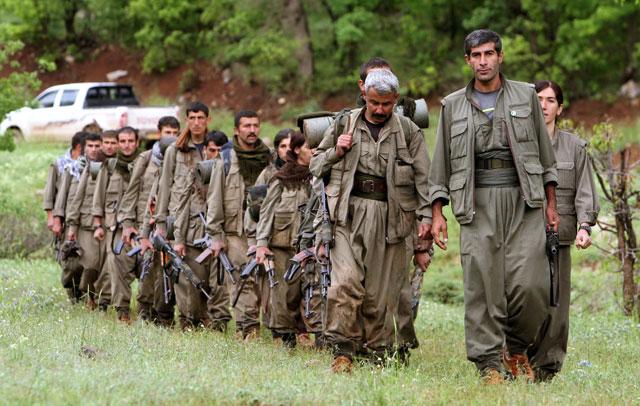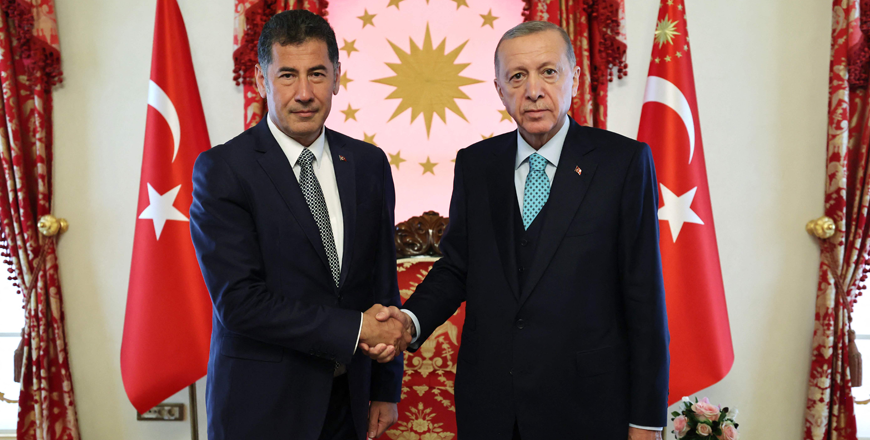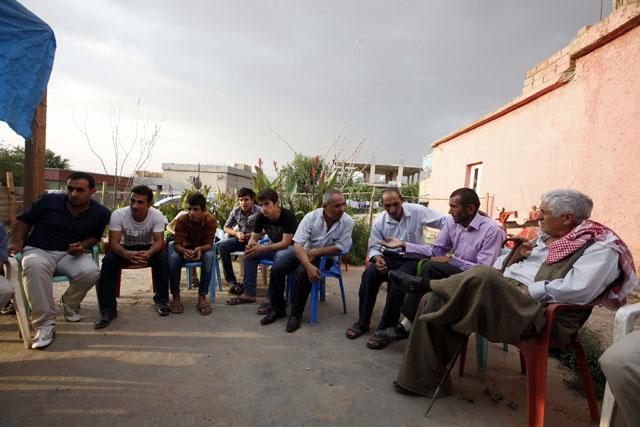You are here
The Kurds: A stateless people straddling four nations
By AFP - Sep 22,2014 - Last updated at Sep 22,2014

BEIRUT — Kurds, who are fleeing Syria in their tens of thousands from a jihadist onslaught, are a people of Indo-European origin. Spread across four states, they number between 25 and 35 million.
Based in four countries
The Kurds are currently spread across nearly half a million square kilometres of mountainous territory, stretching from southeastern Turkey to central Iran, via northern Iraq and Syria.
The biggest number, between 12 and 15 million, live in Turkey, where they make up one fifth of the population. Iran has around five million, less than 10 per cent of the population, while Iraq has 4.6 million (15 to 20 per cent) and Syria around two million (9 per cent).
With no access to the sea and no state to represent them, the Kurds have maintained their language, traditions and clan-based form of social organisation.
Tensions with central authorities
The Kurds have been demanding the creation of a unified Kurdish state, and are thus seen as a threat to the territorial integrity of the countries where they live.
In Turkey, a rebellion led by the Kurdistan Workers Party, or PKK, which is considered a terrorist organisation by Turkey, the United States and the European Union, has left 45,000 dead in the past 30 years.
The Ankara government in late 2012 launched difficult peace negotiations with the PKK, which declared a ceasefire in March 2013. The PKK, which initially sought an independent Kurdish state, is now calling for greater autonomy.
In Iran, the army dismantled a Kurdish republic in 1946 set up a year earlier. The authorities then harshly cracked down on a Kurdish uprising which followed the Islamic Revolution in 1979.
Tehran accuses Washington of supporting armed groups based in Iraq, like the Party for a Free Life in Kurdistan, which has close links with the Turkish PKK.
In Iraq, the Kurds, persecuted under the regime of Saddam Hussein, rose up in 1991 after Baghdad's defeat in Kuwait during the first Gulf War.
The uprising was repressed, leading to an exodus of two million Kurds to Iran and Turkey. The West imposed a no-fly zone, creating Iraqi Kurdistan as a semi-autonomous region. Oil-rich Iraqi Kurdistan comprises Erbil, Dohuk and Sulaimaniyah provinces.
The peshmerga, or Iraqi Kurdish fighters, seized the city of Kirkuk on June 12 after the rout of the Iraqi military by jihadist group the Islamic State (IS). On July 3, the president of Iraqi Kurdistan, Massud Barzani, launched plans for a referendum on independence, drawing criticism from his American allies.
In Syria, the Kurds, who are repressed by the regime, reacted cautiously to the insurrection which broke out in March 2011.
They have been running their zones in the north of the country since the withdrawal of government forces in mid-2012.
The powerful Democratic Union Party on November 12, 2013, announced the formation of a transitional autonomous administration after making key territorial gains against jihadists.
In firing line
Kurds are mainly Sunni Muslims, with minorities of non-Muslims, including Christians and Yazidis, and have mostly secular political movements, making them a target for the jihadists.
In Iraq, they have been in the firing line of the IS offensive launched on June 9 after the Iraqi army collapsed.
Kurds from Syria and Turkey came to their aid in August, when the jihadists were 40 kilometres from Erbil, the capital of Iraqi Kurdistan.
The Iraqi Kurds have received Western aid, with deliveries of weapons, with their forces also supported by US and French air strikes.
Turkey said Monday that some 130,000 people had flooded across its border from Syria as Kurdish fighters battled IS jihadists trying to capture the strategic town of Ain Al Arab.
Related Articles
ERBIL, Iraq — Turkey's presidential election is being anxiously watched by Kurds in Syria and Iraq as economic interests compete with fears
What has long been a dream for the Middle East’s Kurds, an independent state, is within reach in Iraq, but Turkey’s Kurds, wearied by a 30-year conflict with Ankara, see a brighter future at home, where negotiations could deliver the rights they have fought for.
ERBIL, Iraq — A Turkish drone strike in northern Iraq on Tuesday killed three Yazidi fighters affiliated with the Kurdistan Workers' Party (













